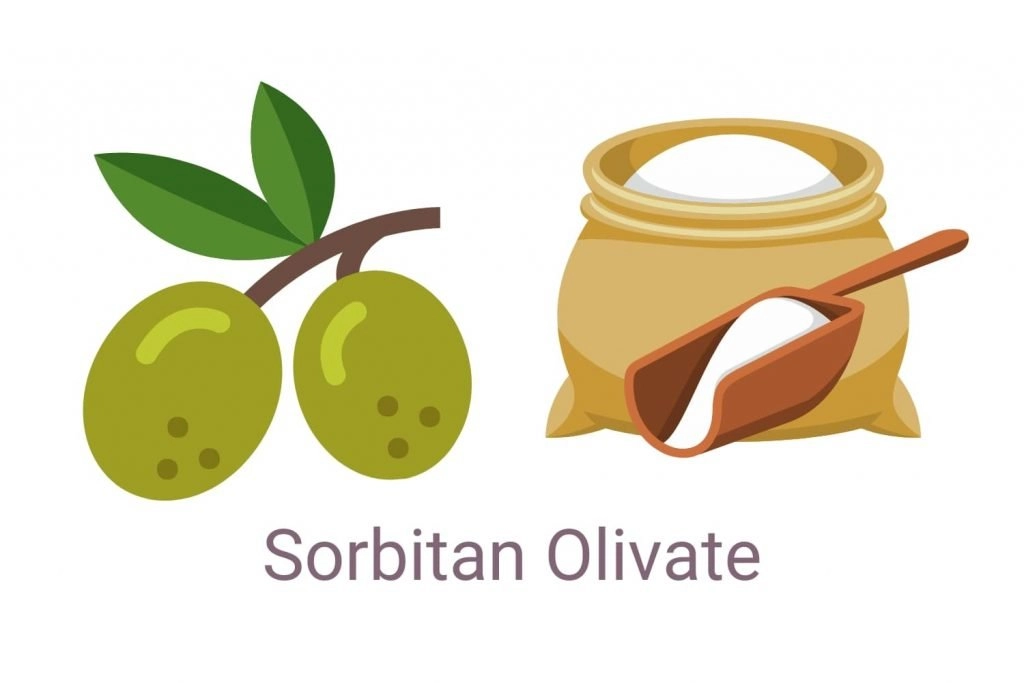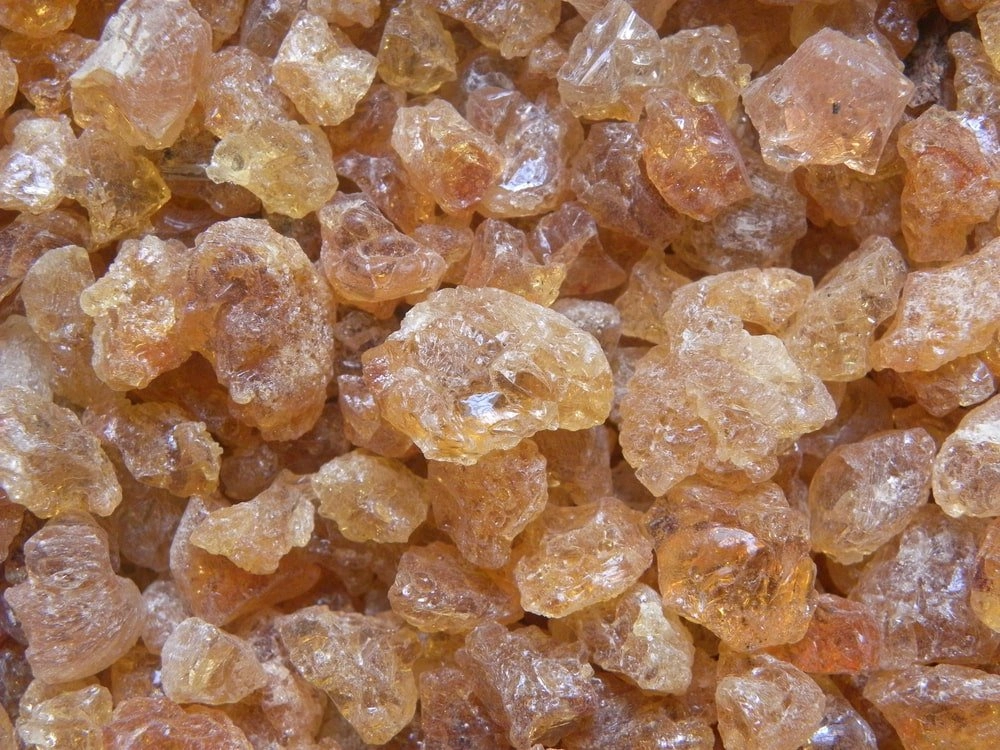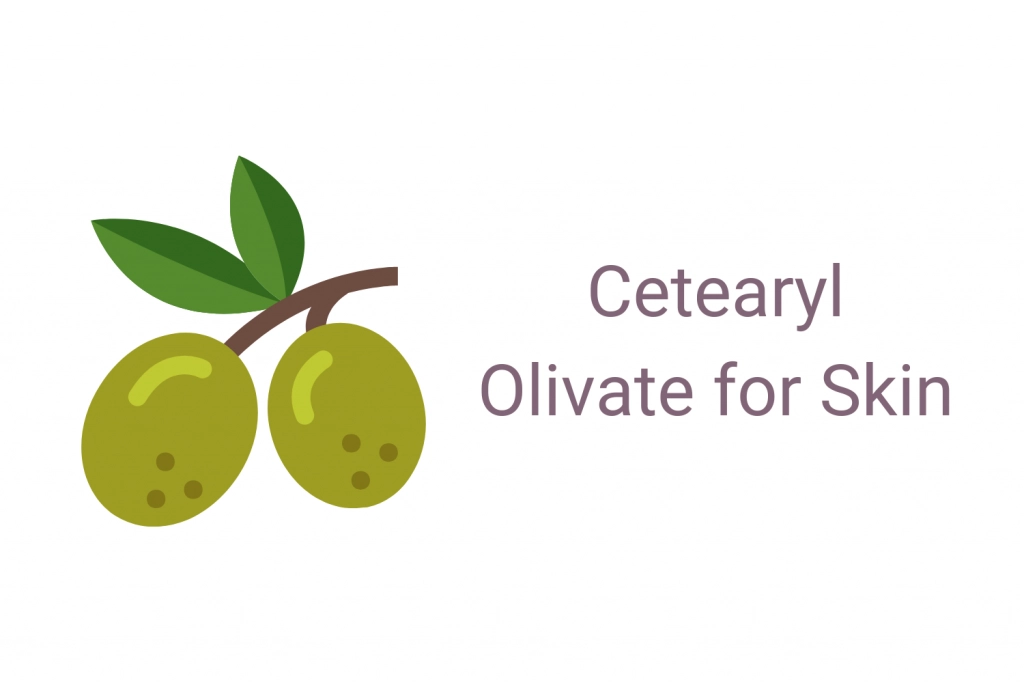Ingredients such as sorbitan olivate show up in the skincare products we use every day. Along with lots of other hard-to-pronounce ingredients. But when this is simply another ingredient on the list, it’s hard to know whether it’s a good ingredient or not. Is it good? Is it bad? What does it do for the skin?
This post may contain affiliate links. Read the full disclosure here
These are common questions that come up all the time. Luckily, we’re here to help answer some of these questions, specifically for sorbitan olivate. We’ll take a deeper look at what this ingredient does and why it’s in so many different products.
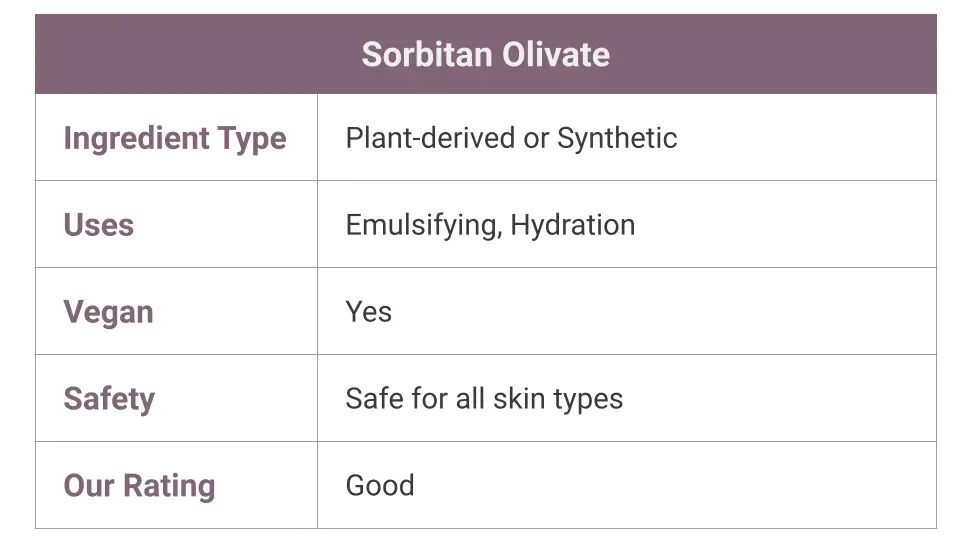
What is Sorbitan Olivate?
Sorbitan olivate is an emulsifier and surfactant made from sorbitol (natural sugar alcohol) and the fatty acids of olive oil. It can be plant-derived or made synthetically. Once you understand what it is, the name is less scary sounding. The “sorbitan” part comes from sorbitol and the “olivate” part comes from olive oil. Sorbitan olivate is a popular choice in skincare and cosmetics since it’s an effective PEG-Free emulsifier.
When you see sorbitan olivate as an ingredient, there is a good chance you’ll see cetearyl olivate as well. This is a similar ingredient that combines cetearyl alcohol and the fatty acids of olive oil.
Sorbitan Olivate Skin Benefits
As noted above, sorbitan olivate is an effective emulsifier. This type of ingredient is key to many product formulations since they help water-based and oil-based ingredients stay together. It helps products have a nice smooth, spreadable texture, without a soapy film.
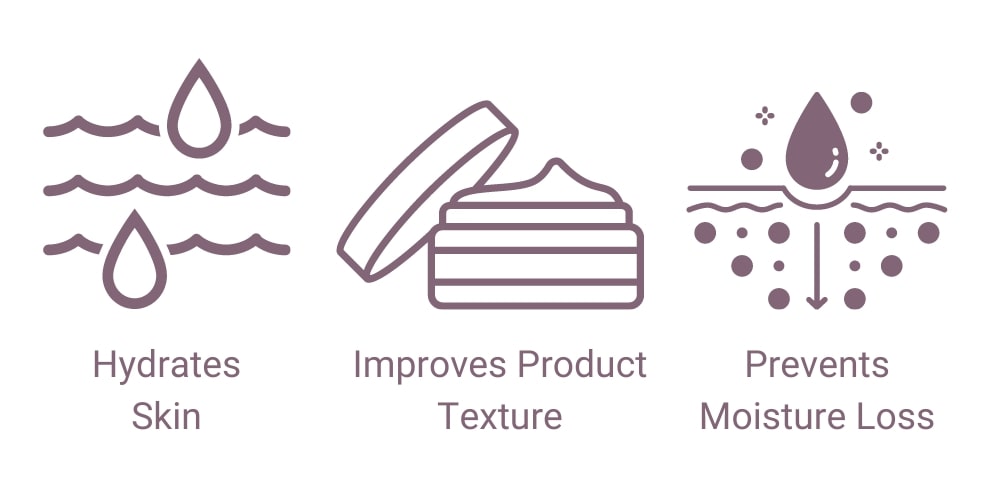
But sorbitan olivate isn’t only great for a smooth even product texture, it also offers benefits for the skin. Sorbitan olivate is also a surfactant, meaning it helps wash away ick and oil from the skin. This is why sorbitan olivate is in cleansing balms, face wash, body wash, and shampoo. It also helps hydrate and softens the skin while also protecting against moisture loss.
- Hydrates and softens the skin
- Helps the skin retain moisture
- Effective emulsifier to help prevent separation
- Gentle enough for all skin types
Skincare isn’t the only place you’ll find sorbitan olivate. It’s in tons of personal care products too! It’s common cosmetics, shampoos, sunscreen, body wash, shaving cream, and lip gloss.
Is Sorbitan Olivate Safe?
Sorbitan olivate is considered safe to use for all skin types. The Cosmetic Ingredient Review Expert Panel reviewed sorbitan olivate along with 20 other sorbitan esters and concluded these ingredients are safe to use in cosmetics. EWG also rates this ingredient with a 1. This is the best score possible based on their 1-10 rating. The rating is based on the likelihood to cause cancer, toxicity, or allergies.
Since sorbitan olivate is simply a mix of fatty acids from olive oil and dehydrated sugar, there aren’t any major concerns. This ingredient is hypoallergenic and biocompatible.
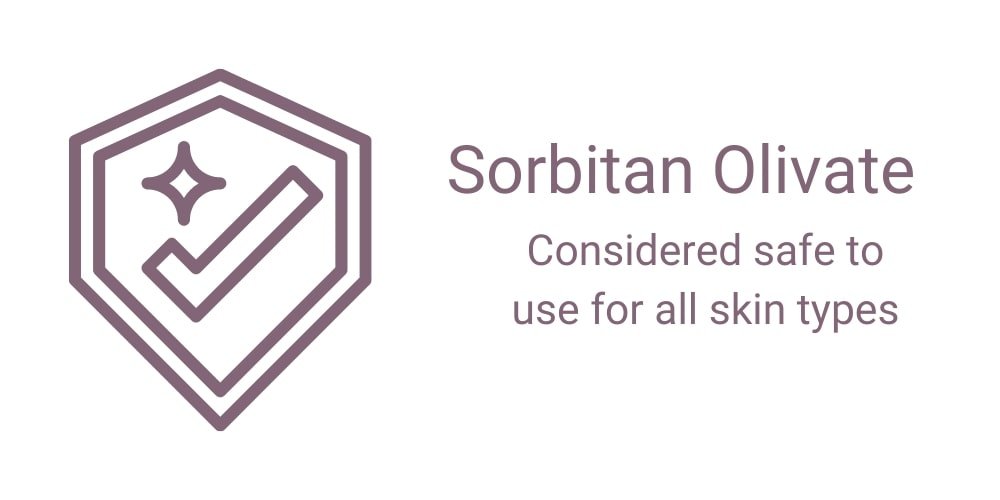
What is OliveM 1000?
When reading about sorbitan olivate, you’ll likely come across the ingredient OliveM 1000. This is a popular emulsifier that is made with sorbitan olivate and cetearyl olivate. This multipurpose ingredient has a composition very similar to the lipids on the skin surface. This combo of fatty acids provides deep hydration to the skin and creates a nice smooth, buttery product texture.
OliveM 1000 is biodegradable, plant-derived, and safe for all skin types. This ingredient has a comedogenic rating of 0-1, so it won’t clog your pores.
Additional Frequently Asked Questions
Key Takeaways
There isn’t a need to seek out sorbitan olivate as a standalone ingredient. But it’s not an ingredient to be worried about either. It can be used safely for all skin types and there isn’t a proven concern related to acne or clogged pores. If a product includes sorbitan olivate, think of it as a good thing. It’s a plant-derived alternative to some of the other PEG ingredients that provide similar benefits.

